
Where Apps Are Stored on Android and How to Access Them [4 Ways]

The Android operating system, which is built on the open-source Linux kernel, is widely used on mobile phones and tablets. Android apps are pieces of software created by developers that run on Android devices and provide a variety of tasks and services. So, where are the apps stored on Android? How can you access the application files on Android? This guide will tell you where Android apps are stored and how to get to them, which will help you better manage and use your Android device.
Applications on Android are typically stored in the following locations:
Different applications may use different storage locations, depending on the developer and the Android version. You can use file manager apps to view the installation location and cache data of applications.
There are several methods to access application files on Android. Here are some commonly used approaches:
Coolmuster Lab.Fone for Android can help you access your Android app data on a computer. Even if you delete your data, it can scan your device and locate the deleted data. Then it will display them on the interface, and allow you to recover your data on your computer.
Key features of Coolmuster Lab.Fone for Android:
You just need to follow these steps to learn how to access app files on Android using Coolmuster Lab.Fone for Android.
01Download and install Coolmuster Lab.Fone for Android on your computer. Next, launch the program.
02Connect your Android device to the computer via a USB data cable and follow the on-screen steps to enable USB debugging. Select data to view and click "Next".
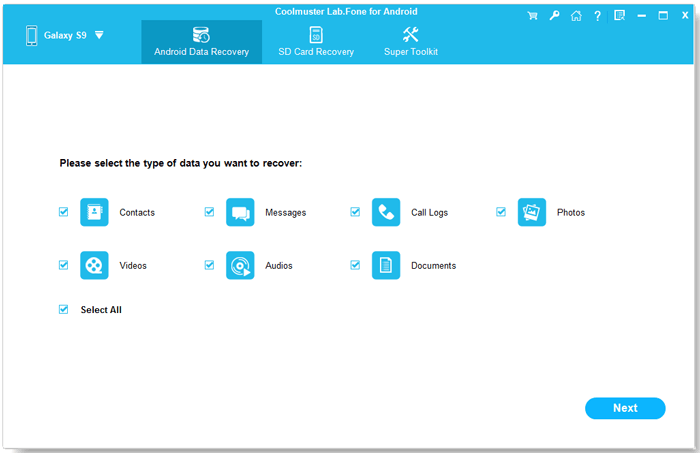
03Choose "Quick Scan" or "Deep Scan" mode. Please select and then click "Continue" to start the Android phone data check.
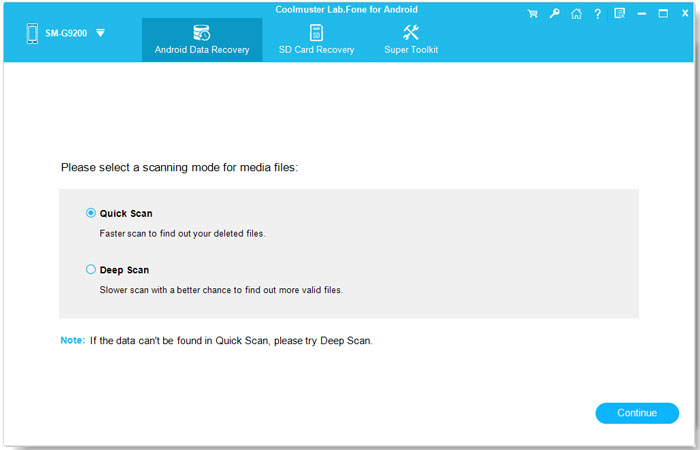
04Now, on the left side of the software, you will see the app files on your phone. Choose the data you want to view. Of course, if you accidentally deleted data, click "Recover" to restore it.
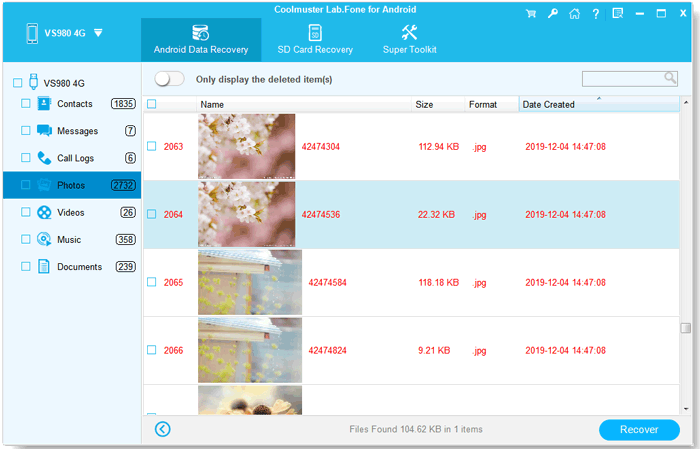
A file manager is a tool that enables you to explore and oversee files and directories on your Android device. Some Android devices come with a pre-installed file manager, while others may require you to download and install one from the app store. Using a file manager, you can view application files on Android, but accessing certain files may require obtaining Root permissions. You can follow these steps of how to find app files on Android:
Step 1. Launch the file manager application on your Android device and find the storage location of the application you want to view, such as "/data/app" or "/Android/data".
Step 2. Click on the folder of the application you want to view, where you can see all the files and folders associated with that app.
Step 3. You can open or copy the desired application files on your Android device and also directly delete unnecessary application files from your Android device.
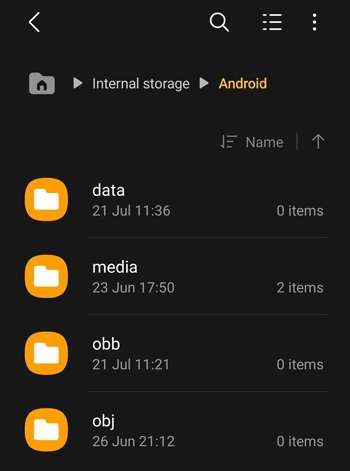
You may also use a computer to find application files on Android. However, this method only allows you to access the program's shared data directory and not the private data directory or the system app directory. Here are the detailed steps:
Step 1. Connect your Android device to the computer using a USB data cable and select "Transfer files" mode on your Android device.
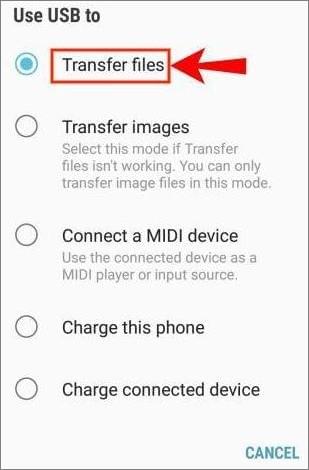
Step 2. Open the file explorer on your computer and locate the icon for your Android device, then double-click to open it.
Step 3. Find the storage location of the application you want to view, such as "/storage/self/primary/Android/data" or "/sdcard/Android/data".
Step 4. Double-click the folder of the application you want to view, where you can see all the files and folders associated with that app.
ADB, or Android Debug Bridge, is a crucial Android SDK utility. It lets computer users control Android emulators or real Android devices. It can access Android app files and perform commands. Install the ADB tool on your PC and enable USB debugging on your Android device to access any app file with ADB. Follow these steps:
Step 1. Download and install the ADB tool on your computer, then unzip it to a convenient location, such as "C:\adb".
Step 2. Connect your Android device to the computer using a USB data cable and enable USB debugging mode on your Android device.
Step 3. Open the command prompt on your computer and enter "c:\adb", then press "Enter" to navigate to the directory of the ADB tool.
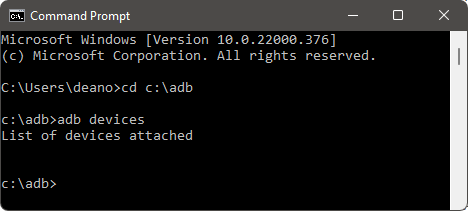
Step 4. Type adb devices and hit "Enter" to verify whether your Android device is successfully connected. If successful, you should see the serial number of your Android device.
Step 5. Enter the adb shell and press "Enter" to enter the Shell environment of your Android device. Here, you can execute various Linux commands like ls, cd, cp, rm, etc.
Step 6. Locate the storage location of the application you want to view, such as "/data/app" or "/system/app", and use the ls command to view all files and folders in that directory.
Step 7. Utilize the cp command to duplicate the desired application file to your computer, for example, "cp /data/app/com.example.app/base.apk /sdcard/base.apk". Then, use the adb pull command to pull it from the Android device to the computer, for example, "adb pull /sdcard/base.apk C:\base.apk".
Step 8. You can open or copy the desired application files on your computer. Alternatively, employ the rm command to erase unnecessary application files from your Android device, for example, "rm /sdcard/base.apk".
1. What is stored in the Android App Data folder?
Android apps save their settings, cache, databases, logs, and more under the data folder. Each application's data folder is usually "/data/data or /data/user/" or "/data/user_de/". Due to their sensitive content and program setups, these directories frequently require Root rights. Accidentally removing these folders may cause application failure or data loss.
2. How to clear app data on Android?
Clearing Android app data refers to the deletion of an application's private data, such as settings, cache, databases, logs, etc., to free up storage space or resolve issues with the application. You can follow these steps:
Step 1. Open the "Settings" app on your Android device and select the "Apps" or "Application Management" option.
Step 2. Find the application for which you want to clear data, then tap on it to access the application's information page.
Step 3. Click on the "Storage" or "Storage Space" option, and then tap "Clear data" or "Clear cache".
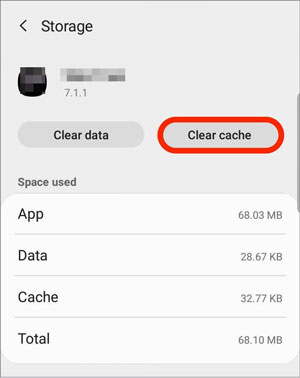
3. Can I change the default storage location for app installations?
The device determines the default storage location for app installations, and users cannot readily modify it. However, some smartphones allow you to manually transfer programs to external storage.
4. Can I move apps to an SD card for storage?
Depending on the device and Android version, some apps can be moved to an SD card to free up internal storage. This option is available in the App info settings for individual apps.
After you understand where your apps are stored on your Android device, you can manage them easily, and fix them fast. You can also view and recover your app data with Coolmuster Lab.Fone for Android on your computer. With it, your images, videos, contacts, and more app data can be found smoothly.
Related Articles:
How to Transfer Apps from Old to New iPad?
Help! My Camera App Disappeared: Troubleshooting and Solutions





